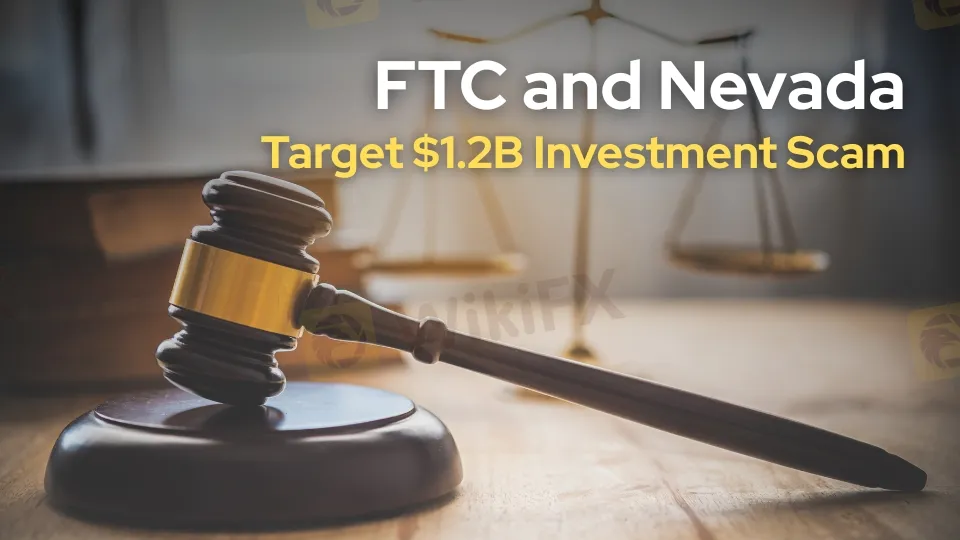简体中文
繁體中文
English
Pусский
日本語
ภาษาไทย
Tiếng Việt
Bahasa Indonesia
Español
हिन्दी
Filippiiniläinen
Français
Deutsch
Português
Türkçe
한국어
العربية
FTC and Nevada Target $1.2 Billion Investment Scam | IML Exposed
Abstract:FTC and Nevada crack down on IML scam, exposing false earnings claims and deceptive multi-level marketing tactics that stole over $1.2 billion from consumers.

The Federal Trade Commission (FTC) and Nevada have launched legal action against a massive investment training and business venture scam, costing consumers over $1.2 billion. The scam, now branded as IYOVIA, previously operated under names like IM Mastery Academy, iMarketsLive, and IM Academy—collectively known as “IML.” Authorities claim IML used deceptive earnings promises to lure consumers into pricey financial training programs and a multi-level marketing (MLM) scheme.
The lawsuit, filed jointly by the FTC and Nevada Attorney General, accuses IML and its operators of making unfounded claims to sell training courses—some costing up to $400 monthly—and encouraging participants to recruit others into the MLM structure. Targeting young adults, IML allegedly exploited social media, including college pages, with posts showcasing fake trading successes and lavish lifestyles.

“This scam‘s scale is staggering, from wild earnings claims to unqualified ’trainers‘ posing as experts,” said Christopher Mufarrige, FTC Bureau of Consumer Protection Director. “It’s hurt countless consumers, especially young people trying to build a future. Were proud to partner with Nevada to stop it.”
IML‘s recruitment often begins with flashy social media ads—think luxury cars and exotic trips—posted by salespeople claiming huge profits from IML’s training. Interested consumers are then pitched at events or via calls, promised riches like retiring in their 20s or earning cash “in your sleep.” Yet, the FTC alleges these “trainers” lack credentials or proof of success, and the earnings claims are baseless. Evidence shows IML keeps no records of customer outcomes, while its own data reveals that 60% of users quit the training within a month, and 90% drop out by six months. Most MLM participants lose money, not make it.
Named in the suit are IML, owners Chris and Isis Terry, and key figures Jason Brown, Alex Morton, Matthew Rosa, and Brandon Boyd. The complaint cites violations of the FTC Act, Telemarketing Sales Rule, Restore Online Shoppers‘ Confidence Act (for the Terrys and IML), and Nevada laws. Filed in Nevada’s U.S. District Court, the case follows a unanimous 3-0 FTC vote to proceed.


Disclaimer:
The views in this article only represent the author's personal views, and do not constitute investment advice on this platform. This platform does not guarantee the accuracy, completeness and timeliness of the information in the article, and will not be liable for any loss caused by the use of or reliance on the information in the article.
Read more

What Happens If You Trade on Illegal Forex Platforms in India?
There are many illegal platforms that offer financial services to clients. These scammers hide the risks involved because their main goal is to steal your money. That’s why it’s so important to understand the dangers of trading on illegal forex platforms

Exposing Trade Capital Limited - Siphoning Millions, Restricting Withdrawals, Charging Extra Fees
Trade Capital Limited is in the news for conducting bad practices as a forex broker. Check out the unethical practices employed by it to scam investors in this article.

US Federal Reserve May Cut Interest Rates in September, Says Goldman Sachs
US Federal Reserve Chair Jerome Powell may slash the policy rate in September 2025, according to research economists at Goldman Sachs. Read this to learn more.

5 Serious Warnings About Mirrox! You Can’t Afford to Ignore
Pay Attention! This is a serious warning you shouldn't ignore. Check out this article and know the 5 red flags about the Mirrox that every trader must be aware of.
WikiFX Broker
Latest News
Global stock markets are calling Trump's bluff on tariffs
Trump's tariffs overshadow the pomp and pageantry as Macron meets King Charles
Boeing delivers most airplanes since late 2023 after ramping up 737 Max output
Inflation expectations drift back down to pre-tariff levels, New York Fed survey shows
10 Unlicensed Brokers Exposed – Check Now to Stay Safe!
Exposed: Ibell Markets - A Scam Broker That Does Not Allow Withdrawals
Gold Prices to Fluctuate This Week Amid July 9 Tariff Deadline, Fed Policy
America's Deficit Reckoning: How the U.S. debt spiral could spark a crisis
Treasury yields hold steady as Trump extends tariff deadline
Asia-Pacific markets mostly rise as investors assess Trump's steep tariffs
Currency Calculator


